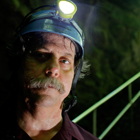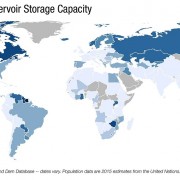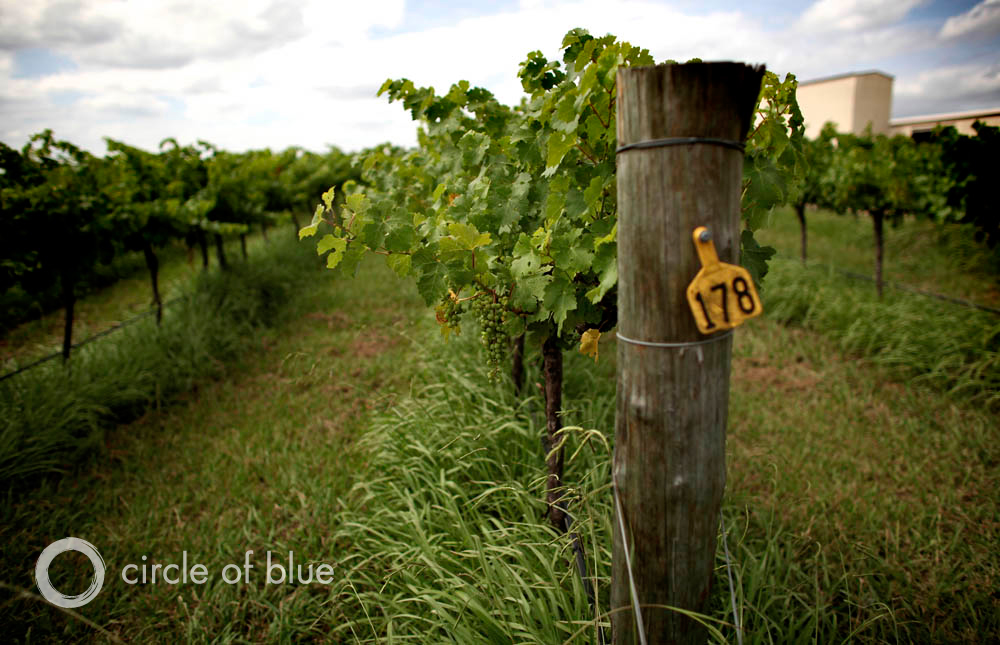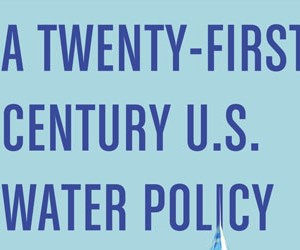Oregon Congressman Proposes Clean Water Trust Fund
Revenue for the fund would come from taxes on containers and waste products.
Brett Walton
Circle of Blue
Since the fiscal stimulus in 2009, the pot of federal money allocated to water infrastructure programs has downsized each year, even as the estimated cost to overhaul an aging system and to meet water quality standards continues to rise.
So with water programs coming up short in the appropriations process, an Oregon congressman is attempting a different tack.
Last week, Representative Earl Blumenauer (D-Oregon) introduced a bill that would create a trust fund for clean water. Revenue for the fund would come from taxes on beverage containers and on certain products that are commonly flushed into the sewer system.
We have dedicated funding for the nation’s transportation systems, said Blumenauer, referring to the federal gasoline tax of 18.4 cents per gallon ($US 0.05 per liter). It’s time to establish a similar trust fund to finance clean water infrastructure. We cannot continue to place the burden of protecting public health, restoring the environment, and reducing pollution on communities and individuals who are simply unable to afford it.
The United States will need to invest some $US 298 billion in clean water over 20 years to maintain wastewater-treatment plants, to manage stormwater, and to reduce combined sewer overflows, according to the most recent survey from the U.S. Environmental Protection Agency, released in 2008. An additional $US 334 billion will need to be spent on drinking water systems.
Unlike other legislation to establish water trust funds, Blumenauer’s bill identifies where the funding would come from. He expects to raise $US 9 billion per year from:
- A tax of $US 0.03 on the containers of water-based beverages. This applies to containers of 19 liters (5 gallons) or less, but does not include alcoholic beverages, milk, or juice from concentrate.
- A 3 percent wholesale tax on disposable products that are normally flushed or disposed of through sewer systems — such as soaps, detergents, toiletries, toilet tissue, water softeners, and cooking oils.
- A 0.5 percent wholesale tax on pharmaceutical products.
The revenue would be allocated to the Clean Water State Revolving Fund, a program that provides low-interest loans for wastewater-treatment projects.
This is the second time that Blumenauer has put forward the Water Protection and Reinvestment Act. He learned a few things from the first trip around the legislative carousel.
“Previous iterations of the bill were very broad and got referred to several different committees,” a member of Blumenauer’s staff wrote to Circle of Blue in an email. As a result, the current bill eliminates references to drinking water. “Doing this allowed us to avoid having the bill referred to the Energy and Commerce Committee. We decided it would be beneficial to have the bill referred to fewer committees.”
Passing such a bill is unlikely in this Congress, where there is little common ground on taxes and revenues, but many water organizations appreciate the new approach.
“Realistically, we know we’re not looking at more money being appropriated to the state revolving funds,” said Hannah Mellman of the National Association of Clean Water Agencies, a lobby group for municipal wastewater utilities. “So funding has to come from other means.”
The bill arrives at a time when the very idea of water infrastructure is being reassessed nationwide.
In June, the EPA released new guidelines for integrating stormwater and wastewater investments. In the guidance, the agency encouraged communities to develop green infrastructure — natural water-absorbing systems, such as grassy roofs and wetlands, as well as porous paving materials that let heavy rains percolate into the ground, instead of surging into water bodies.
Advocates of this approach argue that green infrastructure is less expensive than the now-common method of piping water to a central treatment plant. Such natural systems would also reduce energy use and add green space to urban areas.
Brett writes about agriculture, energy, infrastructure, and the politics and economics of water in the United States. He also writes the Federal Water Tap, Circle of Blue’s weekly digest of U.S. government water news. He is the winner of two Society of Environmental Journalists reporting awards, one of the top honors in American environmental journalism: first place for explanatory reporting for a series on septic system pollution in the United States(2016) and third place for beat reporting in a small market (2014). He received the Sierra Club’s Distinguished Service Award in 2018. Brett lives in Seattle, where he hikes the mountains and bakes pies. Contact Brett Walton










Leave a Reply
Want to join the discussion?Feel free to contribute!